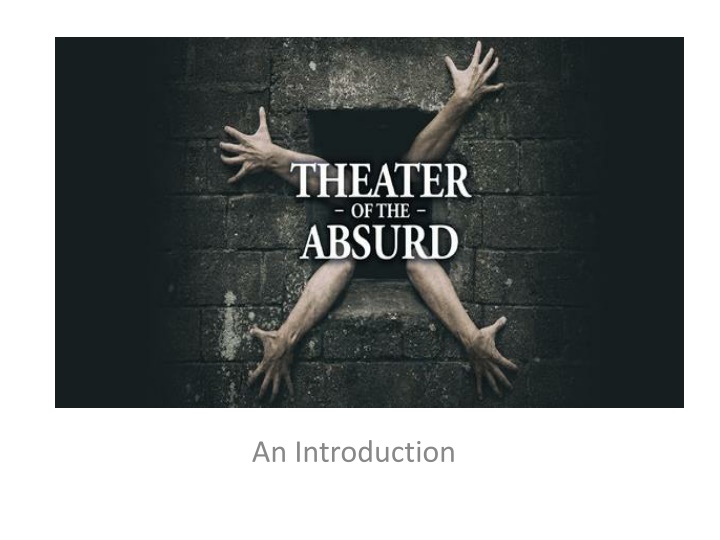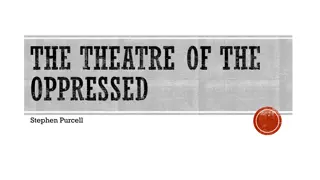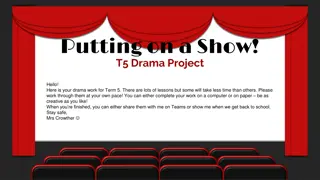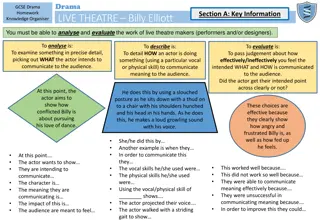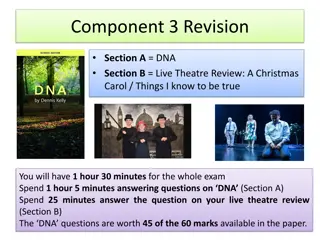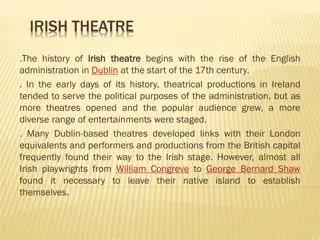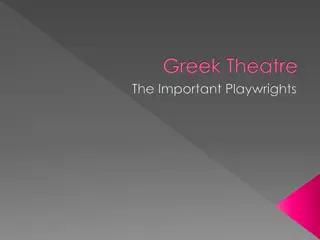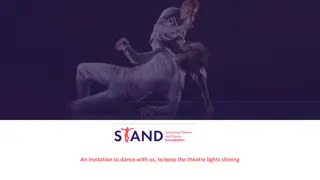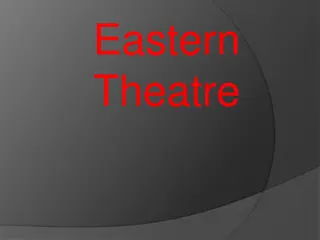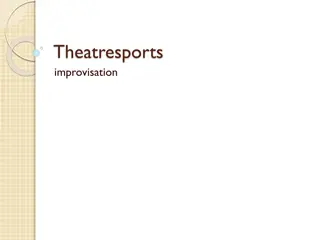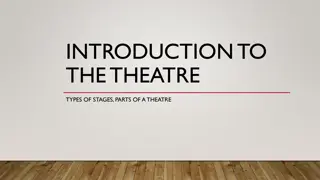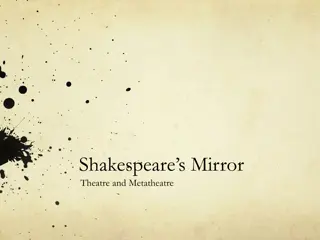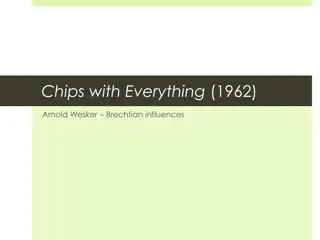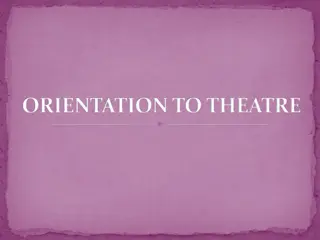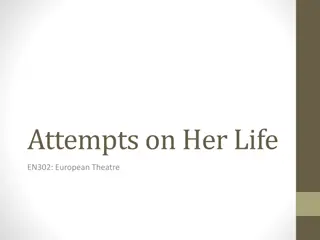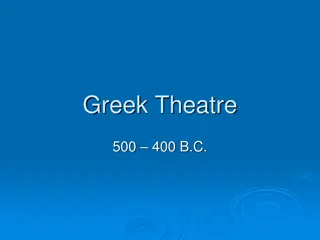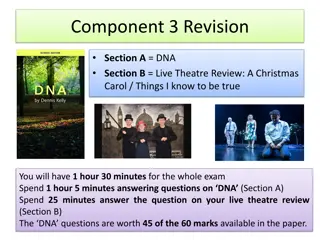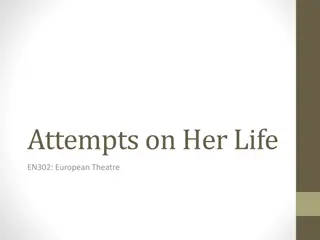Theatre of the Absurd: Origins, Features & Influences
Emerged in post-WWII France, Theatre of the Absurd challenges traditional beliefs with its portrayal of human existence as inherently absurd, influenced by figures like Samuel Beckett and Eugene Ionesco. This avant-garde genre features irrationality, illogical dialogue, and a rejection of conventional structures, offering a tragi-comic perspective on life's meaninglessness and futility.
Download Presentation

Please find below an Image/Link to download the presentation.
The content on the website is provided AS IS for your information and personal use only. It may not be sold, licensed, or shared on other websites without obtaining consent from the author.If you encounter any issues during the download, it is possible that the publisher has removed the file from their server.
You are allowed to download the files provided on this website for personal or commercial use, subject to the condition that they are used lawfully. All files are the property of their respective owners.
The content on the website is provided AS IS for your information and personal use only. It may not be sold, licensed, or shared on other websites without obtaining consent from the author.
E N D
Presentation Transcript
Theatre of the Absurd An Introduction
Origins & Features It refers to dramatic works which focused on the idea that human existence has no meaning and that human condition is essentially absurd ...and that this condition can be adequately represented only in works that are themselves absurd Emerged in France after WW II Albert Camus used the term in his essay The Myth of Sisyphus (1942) Martin Esslin used the term theatre of the absurd in his essay of the same name (1960)
...contd A rebellion against beliefs and values, both of traditional culture and traditional literature Man s reaction to a world without meaning Structure: round shape Irrational and illogical speech, silence; inadequacy of language Comedy mixed with tragic images Dismissal of the concept of well-made play Breaking the fourth wall
Influences Alfred Jarry s French play Ubu roi (Ubu the King)(1896) Dadaism: developed as a reaction to WW I; anti- art, anti-war; rejected logic & reason, expressed nonsense & irrationality Surrealism: revolted against logical reason, morality & artistic norms; turned to subconscious mind, dreams, automatic writing Existentialism: human existence has no meaning or purpose Charlie Chaplin
Samuel Beckett (1906-89) His works focused on poverty, failure, loss Tragi-comic outlook on human existence Man as non-knower , non-can-er Major plays Waiting for Godot (1949) Endgame(1957) Krapp s Last Tape (1958) Breath (1970), a play lasting only about 30 seconds and with no characters
Jean Genet (1910-86) Had a criminal career, spent time in prison, wrote from prison Depicted struggles between outcasts and their oppressors Major Plays The Maids (1947) The Balcony (1957) The Blacks (1959)
Eugene Ionesco (1909-94) Expressed modern feelings of alienation; futility of communication Refused to be called existentialist Major Plays The Bald Soprano (1948) The Chairs (1951) Rhinoceros (1959)
Arthur Adamov (1908-70) Influenced by Bertolt Brecht Dream-like element Major Plays The Confession (1946) The Parody (1950) The Invasion (1950)
Harold Pinter (1930-2008) Enclosed space People defending themselves against intrusion Comedy of menace Major Plays The Room (1957) The Birthday Party (1957) The Homecoming(1964)
